Future of travel: Experts hope sustainability will make it even better
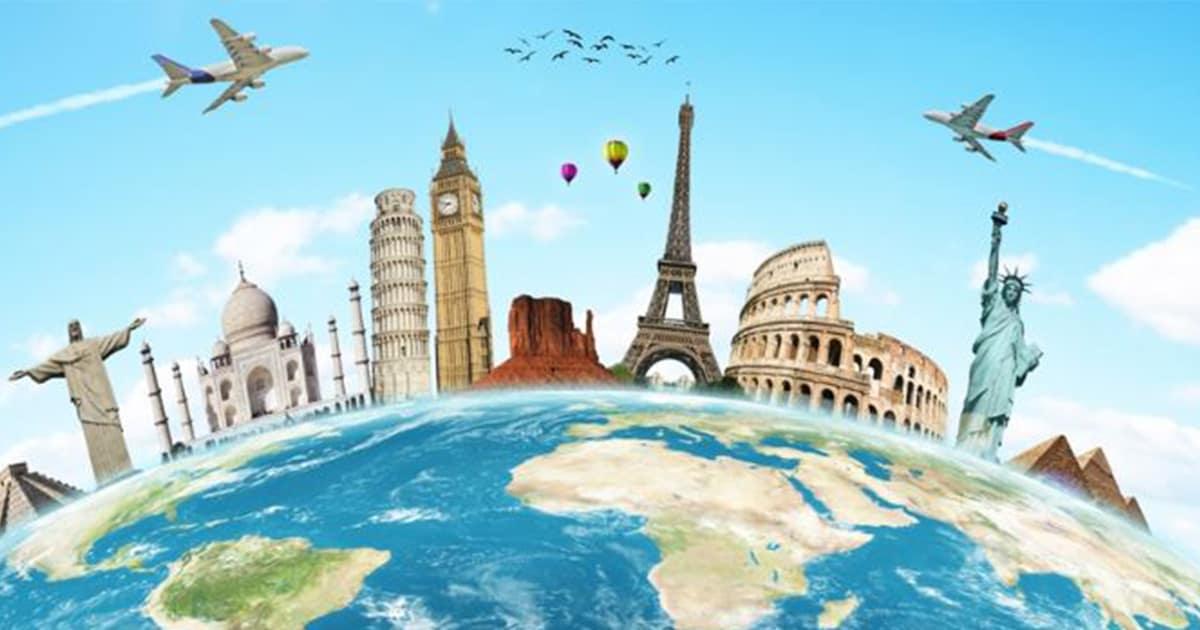
One disease will be gone soon. What about Covid-19?
Seriously, folks … its effects on travel have been devastating. According to Elizabeth Becker, author of “Overbooked: The Exploding Business of Travel and Tourism,” the tourism industry worldwide already has lost $8 trillion.
Restrictions are everywhere. From the United States, where the pandemic is reaching new heights (125,000 new cases a day for the last eight days, plus 870 deaths a day) thanks to colossal government mismanagement, ignorance and incompetence, Americans can travel to only nine countries unrestricted.
Here in Italy, our second wave has turned into a tsunami. We have all-time high seven-day average of 34,000 cases a day. The 451 deaths a day are the highest average since March. Our country has been split into regions labeled red, orange and yellow. Our Lazio region is yellow but I can’t travel for leisure purposes to any red or orange region which encompass 11 of Italy’s 20 regions.
I’ve been out of Italy all of 12 days in 2020: Saudi Arabia in February. My Italian has improved but my wanderlust is running amok. I got excited Saturday just going out for lunch in Rome. Occasionally I’ll rub my passport just to remember what it feels like.
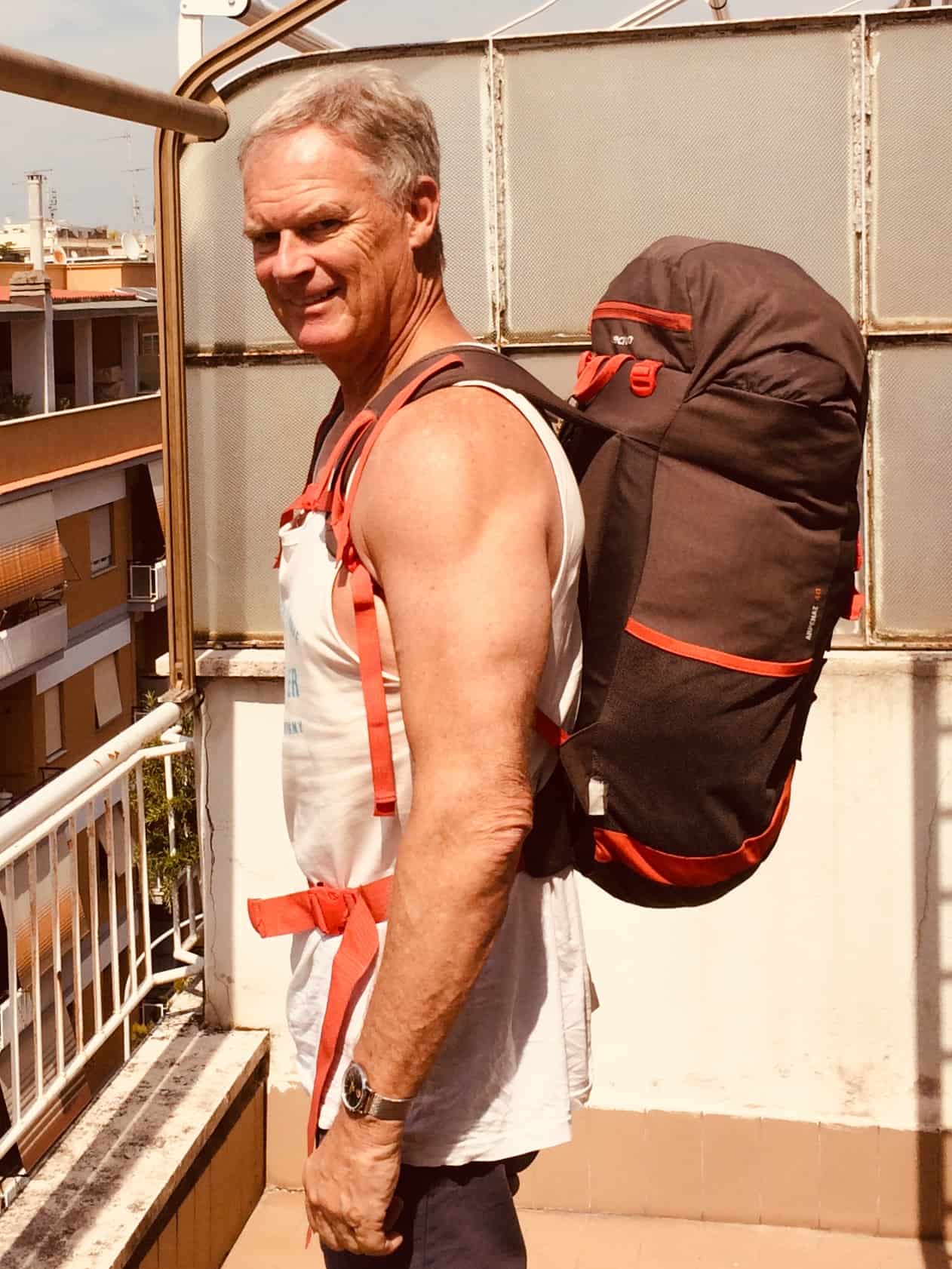
From Italy we can travel almost everywhere in the European Union without restrictions but from some countries, such as France and Czech Republic, it requires swab tests at the border. Forget traveling to the U.S. That is months and an administration away from happening. In fact, the virus has exploded so much in Europe, I am punting the rest of 2020 and maybe the entire winter.
News of a possible vaccine from Pfizer, no thanks to the dead-man-walking Trump Administration which is trying to cherry pick the credit, gives me some hope for the future. But the vaccine is months from fruition and it will take even longer for mass distribution.
I want to travel now, like in the next five minutes. So do millions of others. Alas, fellow wanderers, there is light. The future of travel has hope. Bruce Poon Tip, founder of the travel company G Adventures, said in the October edition of National Geographic, “I still believe travel can be the biggest distributor of wealth the world has ever seen. This pause gives us the gift of time to consider how we can travel more consciously.”
I saw Tip Monday leading a panel discussion during the World Travel Market. The annual travel fair is usually held in London this week and I attended last year. More than 5,000 exhibits and representatives from 182 countries gathered for an international sensory explosion. I’d talk to a rep from Cape Verde Islands about their beaches one minute and walk 100 feet to chat with a pretty woman about trekking in Bhutan. The tiny Saudi Arabia booth inspired me to travel there as it dropped its own travel restrictions last fall.
With Covid ravaging the world, this week’s four-day event was held online. The general vibe is that people can travel in the near future, vaccine or not. Optimism dripped from reps around the world.
Travel will just be different.
“Everyone will slow down a bit and will probably be able to use the senses simply more instead of going, ‘Next! Next! Next!’ and “Fast! Fast! Fast!’ said Ralf Ostendorf, director of market management for Visit Berlin which has developed an app to show off-beat neighborhoods in the city. “It’ll be like, ‘Step back a little bit. Sit down a little bit. Try to enjoy what you see, what you can experience.’ So instead of rushing, inhale everything with all your senses in a much different way. That will help all of us hit the reset button in a different perspective and give you a much better travel experience.
“There will be a trend more toward the mode of travel instead of seeing Europe in seven days.”
I’ve already got one trip in mind. Slow Lake Como (Slowlakecomo.com), a three-year-old travel company, has off-the-beaten path trips around one of the most beaten lakes in the world. Easy hikes from the lake to hidden valleys. Picnics atop hills with views of the lake and the sparkling city of Como. Meetings with local fishermen and farmers. A Smugglers Tour, highlighting the Italy-to-Switzerland trek many famous smugglers took in becoming modern-day Robin Hoods.
Daniele Corti, a Como native, is in lockdown but his mind is not.
“We try always to look at the future in a bright way,” he told me during Wednesday’s WTM conference. “Don’t stick to the present. We believe next spring we’ll be able to travel a little bit and start to work again. 2021 won’t be like 2019 but it’ll be better than 2020.”
Bernadette Romulo Puyat of the Philippines Department of Tourism said their worldwide survey indicated that 77 percent of people would travel in the absence of a vaccine.
“It shows that everybody can adapt to all these challenges,” she said.
Through the WTM, various articles and my own observations, I came up with 10 ways travel will be different but better in the future:
Sustainability
This is the new catchphrase of future travel. It used to be called ecotourism. It basically means healthy, environmentally friendly travel. Help support local communities, learn from their cultures, minimize the environmental impact.
I’ve always done this. I make a point to visit countries that place a major emphasis on the environment. I went kayaking in Belize, a major environmental success story. I hiked in the spotless Republic of Georgia, which has transformed from a Soviet republic to a fledgling tourist destination.
“The pandemic has given everyone a moment to step back,” said Ivan Eskildsen, Panama’s minister of tourism. “Look inwards and evaluate what the tourism industry means to each country. It has given us all an opportunity to look at things from a holistic approach.”
With health becoming such a huge issue in 2020, travelers will start demanding healthier travel environments. It would be sustainability over profits. Maybe the airline industry will have “fly-free days” to slow climate change.
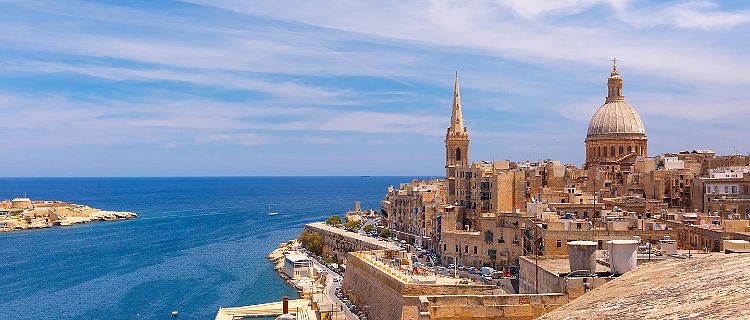
Smaller destinations
The pandemic has affected tourism in every country but some countries depend more on tourism than others. Seasoned travelers will seek out places that need tourism dollars. On my wish list for 2021 are Cape Verde Islands, Malta and a return to Georgia. Tourism accounts for 21 percent or about $320 million of Cape Verde Islands’ gross domestic product. They expected a record 1 million visitors this year. It won’t be even close to half that.
Think of places off the beaten path. Albania. Madagascar. Borneo. You’ll have a surprise every day. And you’ll help places that desperately need it.
Quality over quantity
Did you ever see the comedy, “If It’s Tuesday, This Must Be Belgium”? It was a 1969 romantic comedy about a group seeing Europe in 18 days. Those tours still existed pre-Covid. With Covid expected to linger around the planet for a long time, moving fast around said planet could be deadly.
Travel to one place. Then stay there. One doesn’t have to see all of France. You can’t. I’ve lived in Italy for more than eight years over two stints. I haven’t seen all of Italy. Go to a small, charming city and really get to know it. Make daily visits to the cafe nearest your hotel. You’ll become friends with locals. Check out the town’s cultural events. Go for a hike. You’ll learn more about the country in one place than trying to see many places. And you’ll be safer. Just wear a mask. Everywhere.
Some of my favorite small, manageable cities: Regensberg, Germany; Kandy, Sri Lanka; Ljubljana, Slovenia.
More road trips
People will be scared of public transportation. Being in an enclosed space with dozens of others can be a petri dish for infection. Throw your backpack in your car and hit the road. Rediscover the freedom of stopping for a photo op at a waterfall you’d otherwise whiz by helplessly in a train. Stop in a town you never heard of until you passed through it on the way to somewhere else.
In lieu of international travel in July, my girlfriend and I drove around the beautiful region of Puglia, hitting three villages one day for photos, food and wine in each one. We plan on driving to Molise, Italy’s least-visited region, on the Adriatic once Italy’s Covid curve flattens more.
More travel agents
Remember them? They were the ones in the small offices seemingly on every city street corner. They’d give you advice, book your flights, find your hotels and take your money. That was all pre-Internet.
The world has changed and not just because we can book an around-the world trip from our den. Now we need help to keep up on all the restrictions and precautions. Use travel agents to find destinations that lean on sustainability. What hotels are the safest? Where can we go to avoid crowds?
Travel agents, finally, are back in.
Stay closer to home
You don’t need to hop a plane or gas up your car to travel. Rediscover places around your city. In Italy, pubs and restaurants close at 6 and the curfew is at 10. I live in Rome. Instead of going out to dinner, Marina and I go out for lunch. On Saturday Marina and I drove 30 minutes into the Alban Hills southeast of Rome and lunched at Sora Rosa, a sprawling restaurant featuring steaks and pinsa pizza (the same oblong crusts made in Ancient Rome) in the village of Rocca Priora (pop. 12,000).
The previous weekend we went on a five-mile walk along Appia Antica, the original road Ancient Roman armies used to head to the Adriatic. It’s one of the prettiest walks in Europe. Afterward we ate at a little outdoor trattoria, Oppia Antica Caffe. People would travel around the world for one of these authentic, local experiences. We did it from our own backyards.
While waiting for Italy’s Covid curve to fall, I plan on taking a cooking class. I imagine there are few of them in Rome.
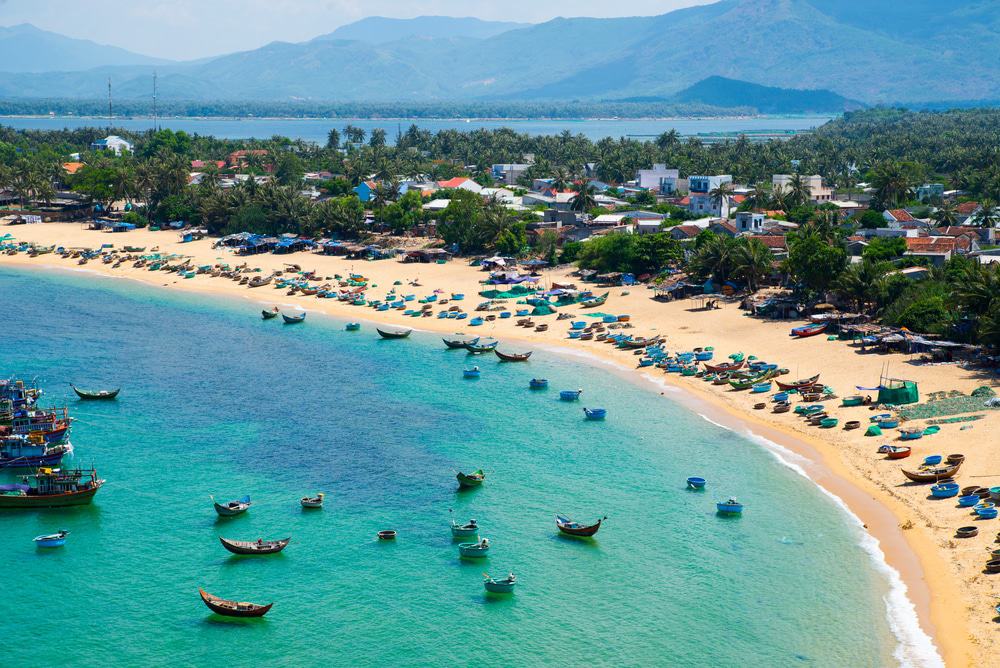
Longer trips
So many people must work remotely, they are discovering they can work from anywhere. If anywhere really means anywhere, why not from an exotic locale? Go to an island and stay for two months. Find a desk for your laptop and work remotely. During breaks, instead of trimming the hedges, go swim in the ocean. Instead of fixing a sandwich for lunch, go eat fresh seafood on the beach.
Find a place that’s sparsely crowded with a low Covid rate, one that’s relatively cheap and, as I stated above, relies on tourism.
How does Uruguay sound? It has had only 3,620 total cases. Punte d’Este is one of the top beach destinations in South America. How about Vietnam? They have only 139 active cases and no deaths the last two months. The Asian Development Outlook predicted in April the country would have one of the fastest-growing economies in Asia next year at 6.8 percent of its GDP. Fiji Islands has had only two deaths.
Just a thought.
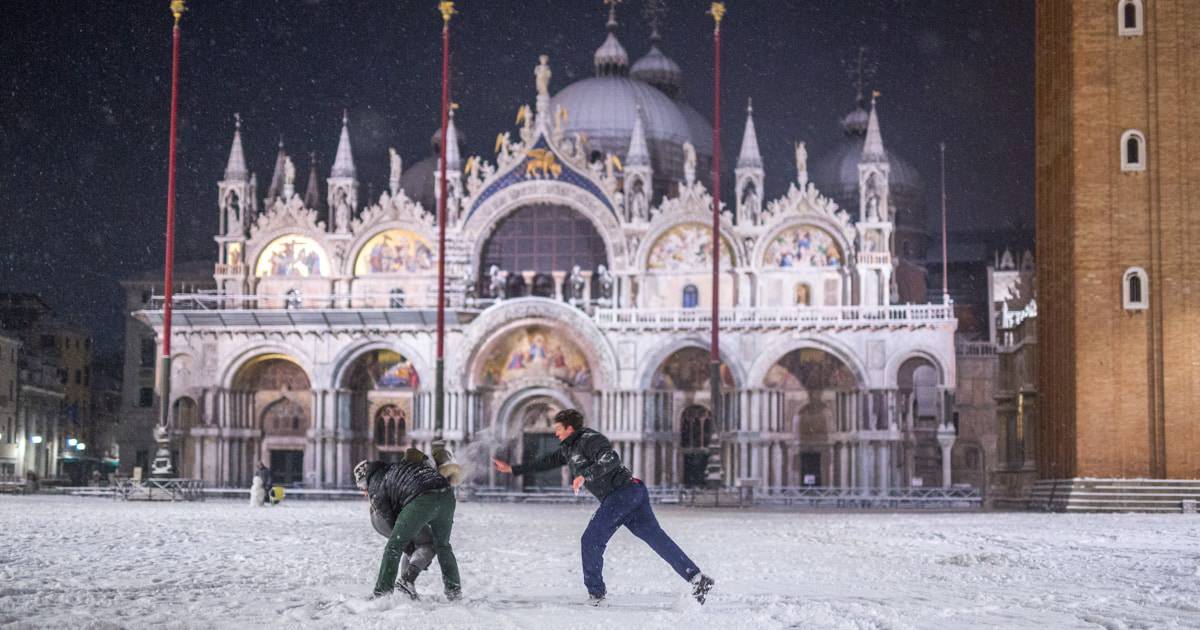
Off-season travel
Part of sustainability is not overloading the environment. Sometimes I think Venice isn’t sinking because of rising tides. It’s sinking from many of the 39 million annual tourists it gets pouring onto St. Mark’s Square in July.
Go in the off season. Even touristy spots are less crowded. Venice is beautiful during a fall rain. I’ve been to Lithuania twice and Latvia once in winter. The snow makes Lithuania’s lakes glisten and Latvia’s Baroque architecture shine like neon. I once went to the Abacos Islands in the Bahamas in November. It rained every day but all the time I spent in bars I made friends with many of the locals.
Rome in December is a great time to visit. Very few tourists even without a pandemic and the temperatures are in the 40s, not sub-freezing like many places.
Hygiene will become more important
We’ve all become accustomed to washing and sanitizing our hands after touching anything. It’s a good custom to carry over into your travels. I’ve seen more hotels with hygienic wipes and soap at entrances and that will continue.
Destinations will be more cognizant of keeping things clean, from spas to restaurants to adventure activities. You can bet the life vest on your white-water trip will have been washed before you put it on.
Seek flexible booking options
Look for airlines and hotels to provide more wiggle room for reservations. Travelers will start demanding free cancellations in case Covid makes a return visit and countries’ restrictions change. I had flights this year cancelled to Spain, Germany and Greece and I took travel vouchers instead of cash refunds on two of them. I didn’t want the hassle of trying to get money back. Other travelers aren’t nearly as patient. Airlines and hotels know this. They should allow us to book now and pay later.
So fret not. Keep researching destinations. Be patient. Covid won’t last forever. And remember: Wear a damn mask.


November 12, 2020 @ 5:40 am
Great piece. I really enjoyed it. You surely made me long for travelling even more.
We look forward to eventually welcoming you to Malta.
Cheers
Paul
November 12, 2020 @ 8:51 am
Thank you for a great post. Lots of places to look into for when we get to travel again.
November 12, 2020 @ 9:41 am
Any chance that you can limit your childish political views and stick to the travel tips and experiences. I’m considering extensive travel and moving abroad, so I enjoy your perspective. Your political comments are just unwanted noise. Thx
November 12, 2020 @ 11:26 pm
Hey Rich, it’s his blog, after all. Maybe stick to the Fox News travel blog.
November 13, 2020 @ 1:57 am
Hey Rich, It is his blog and we as Americans agree with him. Change channels guy.
November 13, 2020 @ 1:58 am
Hey Rich, It is his blog and we as Americans agree with John. Change channels guy.
November 12, 2020 @ 10:07 am
Great article and gives me hope and keeps me optimistic for future travel. I hope people will take your advice on slow-travel. Staying in one village or city for an extended time (in my opinion) is the only way to travel. Rushing through a city, just to say you have been there is like taking a flight with a layover in Paris and saying you’ve been there! Touch base with Carla Tomasi in Rome….she holds fantastic online classes.
November 13, 2020 @ 8:57 am
Only 5gin* I would disagree with us “spotless Georgia” ha, on my trip there in 16 there was endless bottles strewn on highways and a plethora of abandoned gas stations and other junky buildings everywhere. Not spotless!
November 14, 2020 @ 2:58 pm
Great article. I enjoy reading your perspective of life in Rome and joining you in all your travels.
Keep up your political comments.